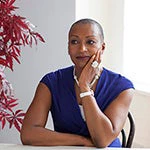
Female genital mutilation/cutting (FGM/C) is an everyday reality for millions of girls and women around the world . I am no longer shocked when a woman confides in me that she has been “cut,” or tells me the consequences she lives with. Recently, I have had the privilege to meet with FGM survivors who are also activists, and they are fighting to stop the practice in a generation, reminding me that one person can make a difference in ending FGM.
As we mark the International Day of Zero Tolerance for Female Genital Mutilation, on Feb. 6, we are supporting #EndFGM, a survivor-led movement gaining momentum and power around the world.
FGM/C, known as cutting, is a form of violence affecting at least 200 million girls and women worldwide. Every day, about 6000 women and girls suffer the practice , enduring prolonged and irreversible consequences during their entire lives
FGM/C is inextricably linked with ending extreme poverty ; girls who experience it are more likely to be forced into child marriage, more likely to be poor and stay poor, and less likely to be educated. Beyond the data and the statistics, researchers have shown that FGM deprives women of sexual health and psychophysical well-being.
This is what Jaha Dukureh, an FGM/C survivor and activist, called “planned poverty for girls,” and a map for its entrenchment. Dukureh joined other FGM/C survivors and activists who spoke at a recent World Bank Group event, “Ending FGM: The Role of Laws, Education and Social Norms.”
Dukureh, who was “cut” at the age of one month, began to understand the consequences of this trauma when she married at age 15, she said at the event. Survivors like Dukureh are at the forefront of this burgeoning international movement to end the practice.
Activists and NGOS are leading the fight. Tostan, a nonprofit operating in rural Senegal, is accelerating the movement to end FGM/C . Tostan uses an integrated, holistic approach of informal education to empower communities by teaching them about vision and values, democracy, human rights and responsibilities, problem-solving, hygiene and health. Tostan’s longer term approach offers opportunities for community members to consider alternative aspirations and norms.
We believe that legislation and girls’ and women’s knowledge of their rights under the law are the first steps in the fight to #EndFGM.
To this end, the World Bank Group’s Legal Vice Presidency has launched a new document that provides a survey of key international and regional instruments that address FGM/C , as well as national legislations adopted to outlaw FGM/C. The “Compendium of International and National Legal Frameworks on Female Genital Mutilation/Cutting” is a working document prepared to contribute to this urgent development debate, with the understanding that knowledge of the law is an important empowerment tool to end FGM/C.
We hope it responds it to the needs of those interested in this subject, as well as those who work with women and girls affected or at risk. It is intended as a reference tool for development practitioners, lawyers, community leaders, survivors, academics, researchers and students, as well as anyone interested in helping to end the practice.
In 2012, the United Nations General Assembly adopted a resolution urging the international community to intensify global efforts to eliminate female genital mutilation/cutting. It also called upon “States, the United Nations system, civil society and all stakeholders to continue to observe 6 February as the International Day of Zero Tolerance for FGM/C and to use the day to enhance awareness raising campaigns and to take concrete actions against female genital mutilations.”
World Bank President Jim Kim spoke against FGM in 2014, stating that “as a physician, I recognize the terrible suffering. As an anthropologist, I see it is embedded over time, but absolutely changeable.”
We want to make that change happen. We can be the generation that ends FGM for good.


Join the Conversation